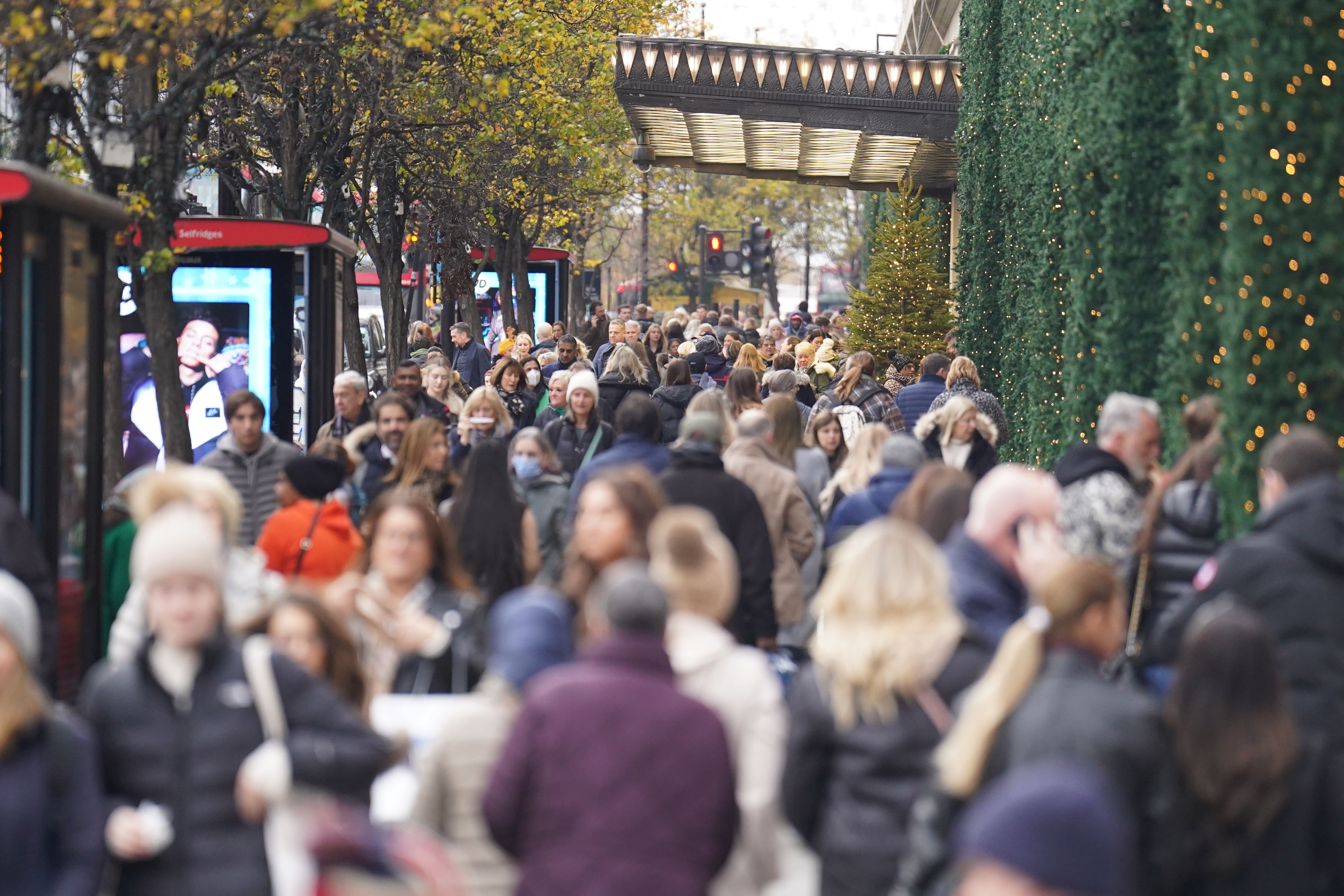High street shopper numbers plunge amid rail strikes and cold weather
Meanwhile, offices also saw a drop in occupancy as fewer workers were able to get into workplaces in UK cities.

Your support helps us to tell the story
From reproductive rights to climate change to Big Tech, The Independent is on the ground when the story is developing. Whether it's investigating the financials of Elon Musk's pro-Trump PAC or producing our latest documentary, 'The A Word', which shines a light on the American women fighting for reproductive rights, we know how important it is to parse out the facts from the messaging.
At such a critical moment in US history, we need reporters on the ground. Your donation allows us to keep sending journalists to speak to both sides of the story.
The Independent is trusted by Americans across the entire political spectrum. And unlike many other quality news outlets, we choose not to lock Americans out of our reporting and analysis with paywalls. We believe quality journalism should be available to everyone, paid for by those who can afford it.
Your support makes all the difference.High streets across the UK saw shopper numbers slump sharply early this week due to rail strikes and cold winter weather.
Meanwhile, offices also saw a drop in occupancy as fewer workers were able to get into workplaces in UK cities.
New figures from Springboard show UK retail destinations saw footfall decline by 8.6% from Monday to Wednesday compared to the same days last week.
The decline was particularly noticeable in high streets, where footfall dropped 15.1%.
The evidence is clear that UK retail destinations have been hugely impacted by the rail strikes this week in terms of footfall, which inevitably will have meant a significant reduction in the amount spent in both retail and hospitality businesses
On Tuesday and Wednesday, when thousands of rail workers took part in strike action in a long-running row over pay and conditions, high streets saw falls of 17.2% and 16.4% respectively.
Meanwhile, UK retail parks saw higher shopper numbers on these days as people opted to travel to out-of-town locations instead.
Central London was particularly dampened by a reduction of people travelling into the city, as footfall fell by 26.5% for the first three days of week, with 30.2% and 31.7% drops for Tuesday and Wednesday specifically.
Overall footfall for the start of this week, a key shopping period ahead of Christmas, was 27% lower than the same period in 2019, before the impact of the pandemic.
Diane Wehrle, insights director at Springboard, said: “The evidence is clear that UK retail destinations have been hugely impacted by the rail strikes this week in terms of footfall, which inevitably will have meant a significant reduction in the amount spent in both retail and hospitality businesses.
“Over the three days from Monday to Wednesday, footfall across all UK retail destinations was 8.6% lower than the week before and 15.1% lower in high streets.
The acceptance of new working patterns has given everybody a newfound freedom to work where they want and how they want; to move the dial between independent and collaborative working as needed
“These results are in sharp contrast to the same three days in the week before (Monday December 5 to Wednesday December 7), when footfall across UK retail destinations was 3.3% higher than in the previous week and 2.9% higher in high streets.
“Indeed, as this is a week closer to Christmas, we would have expected to see an even greater increase of footfall this week.”
Meanwhile, fresh data showed occupancy at UK offices dropped significantly on Wednesday amid industrial action.
UK occupancy fell to 26% on Wednesday compared to 46% on the same day last week, according to workplace technology company Freespace.
It said London was particularly impacted, recording occupancy at 21% compared with 49% a week earlier.
Raj Krishnamurthy, Freespace chief executive officer, said: “People have been given more flexibility in their work.
“In a world where videoconferencing and remote working has become normal, synchronised operations have proven not just workable but, in many ways, successful.
“The acceptance of new working patterns has given everybody a newfound freedom to work where they want and how they want; to move the dial between independent and collaborative working as needed.”